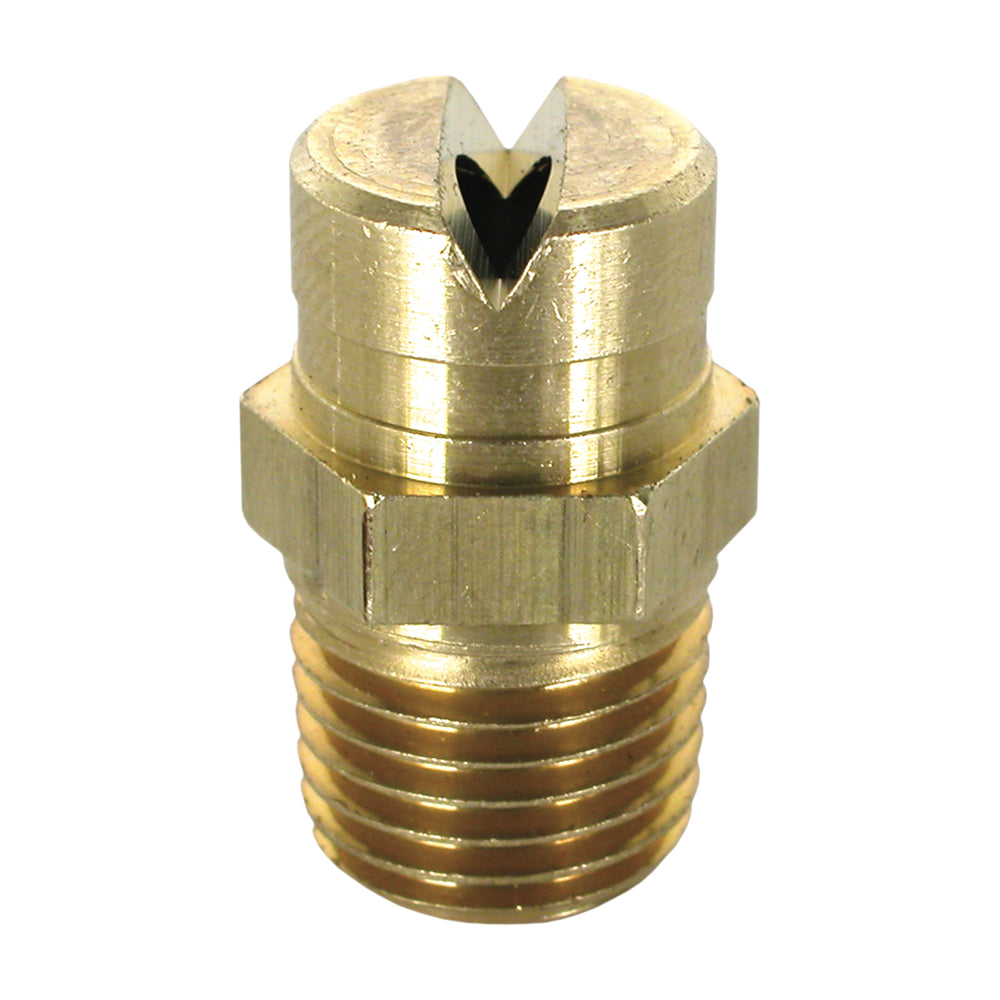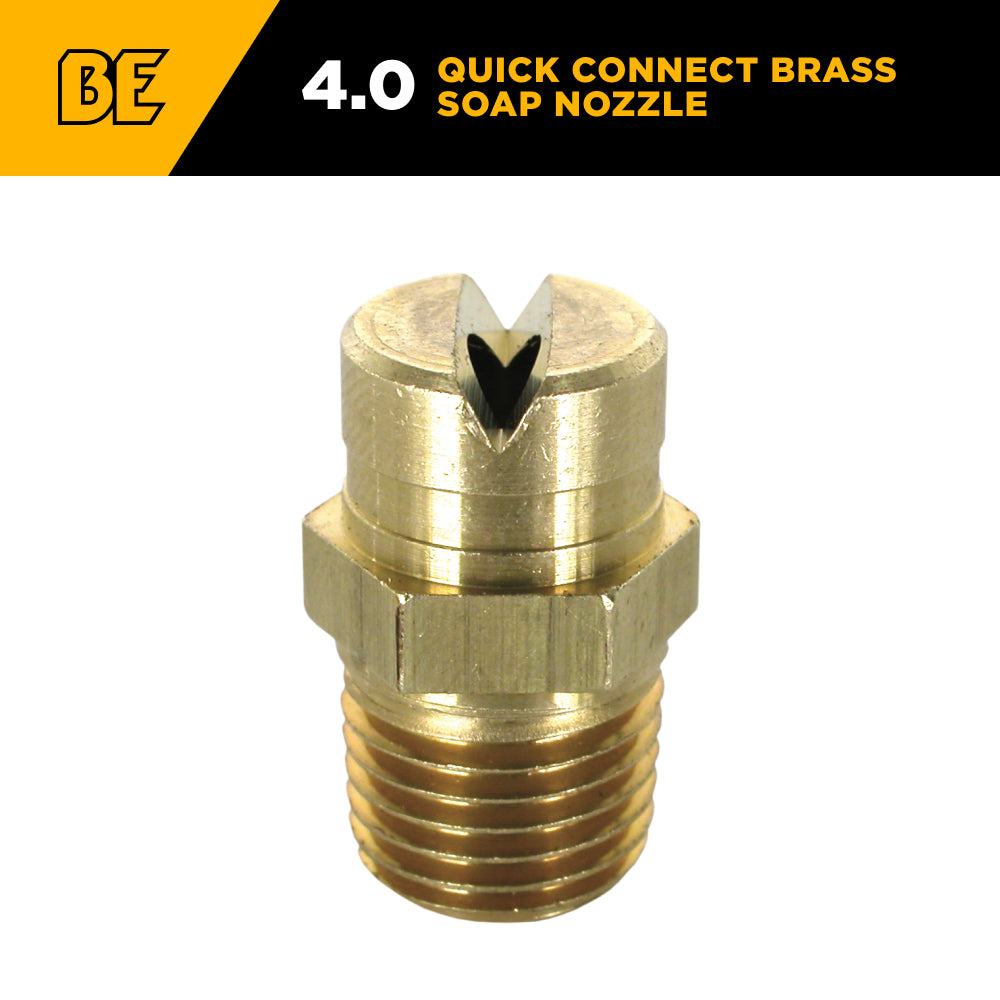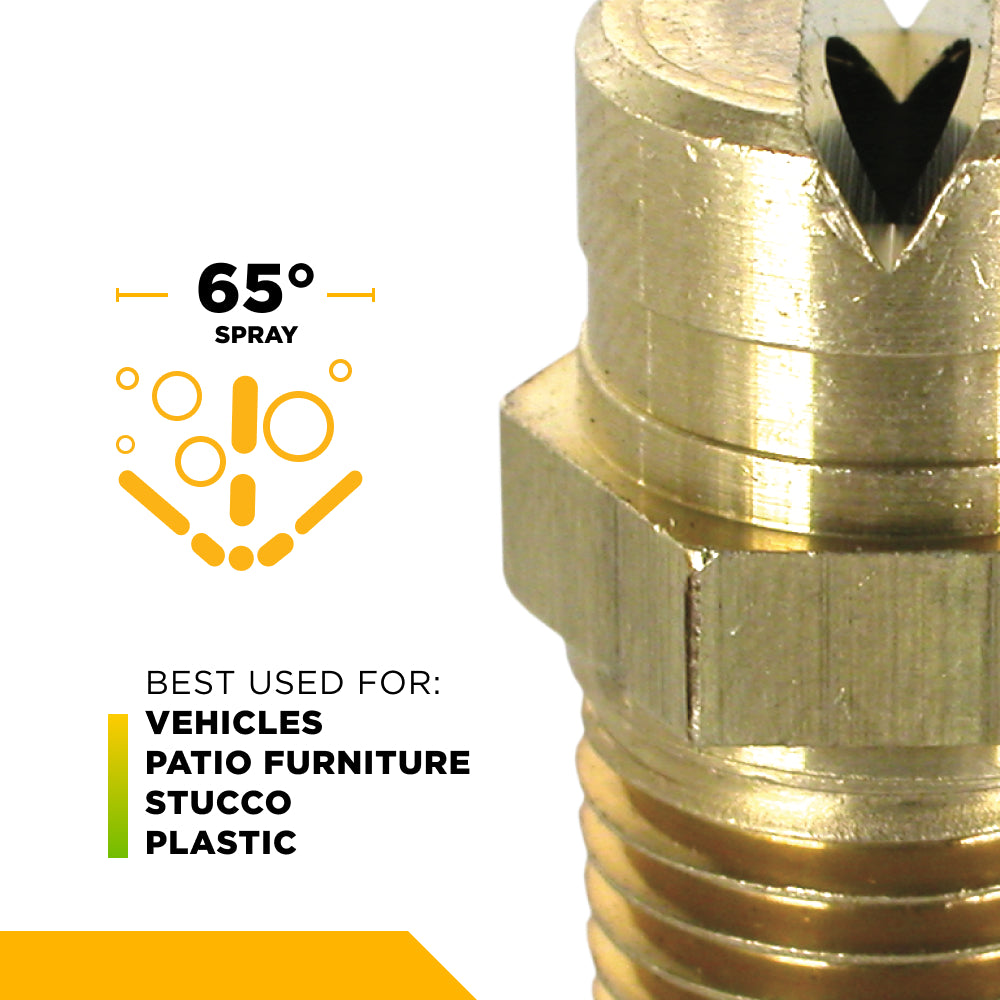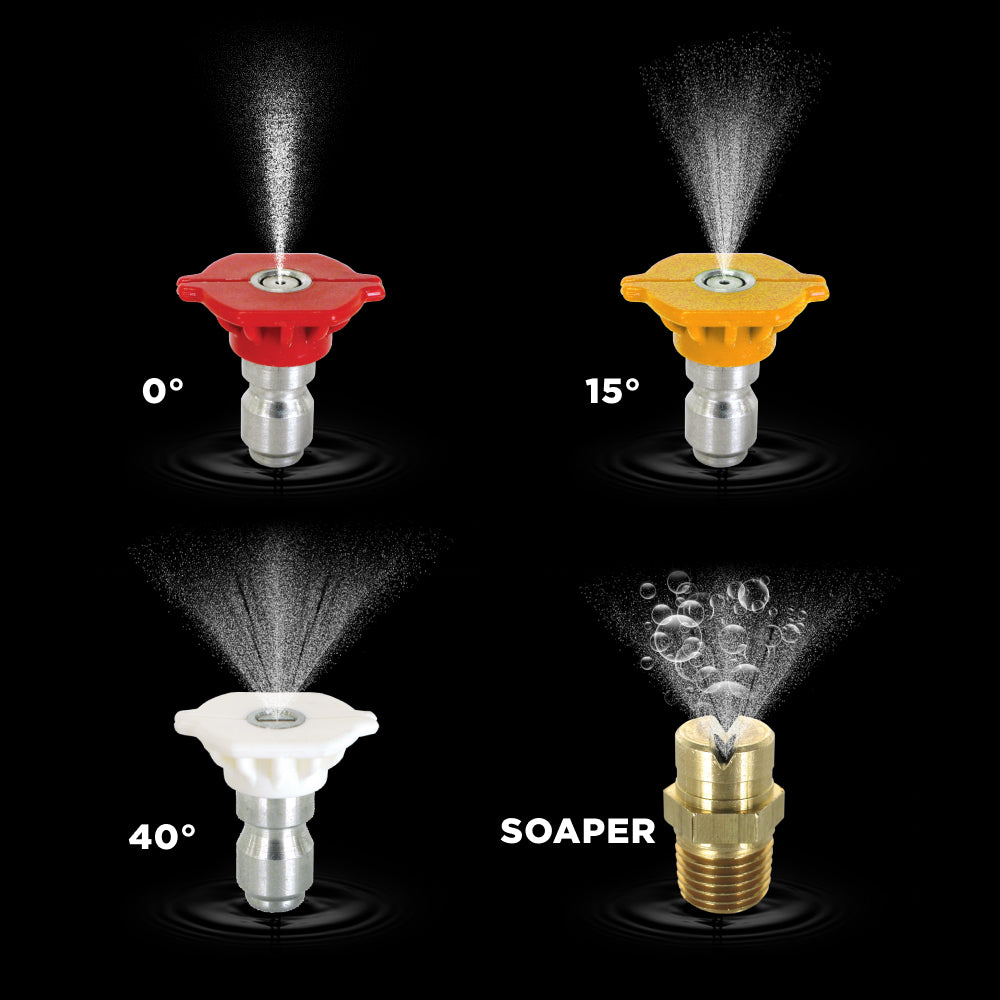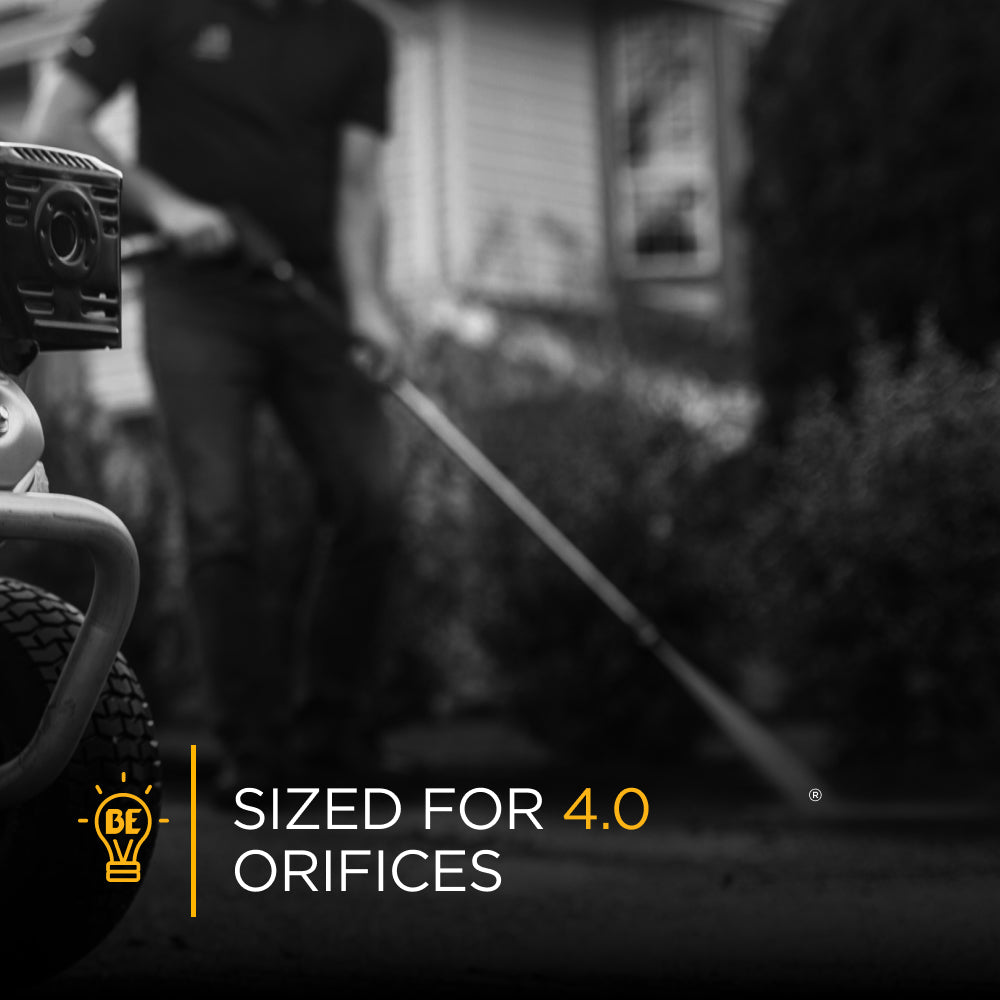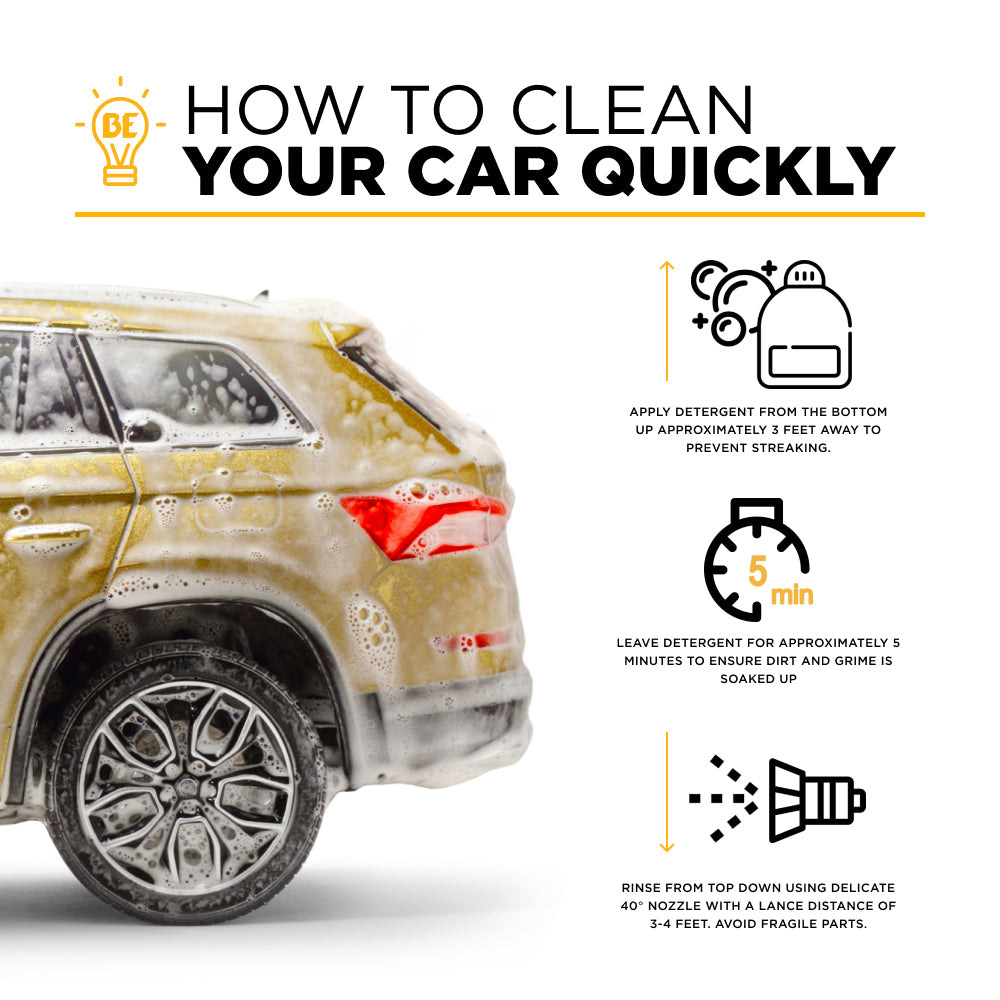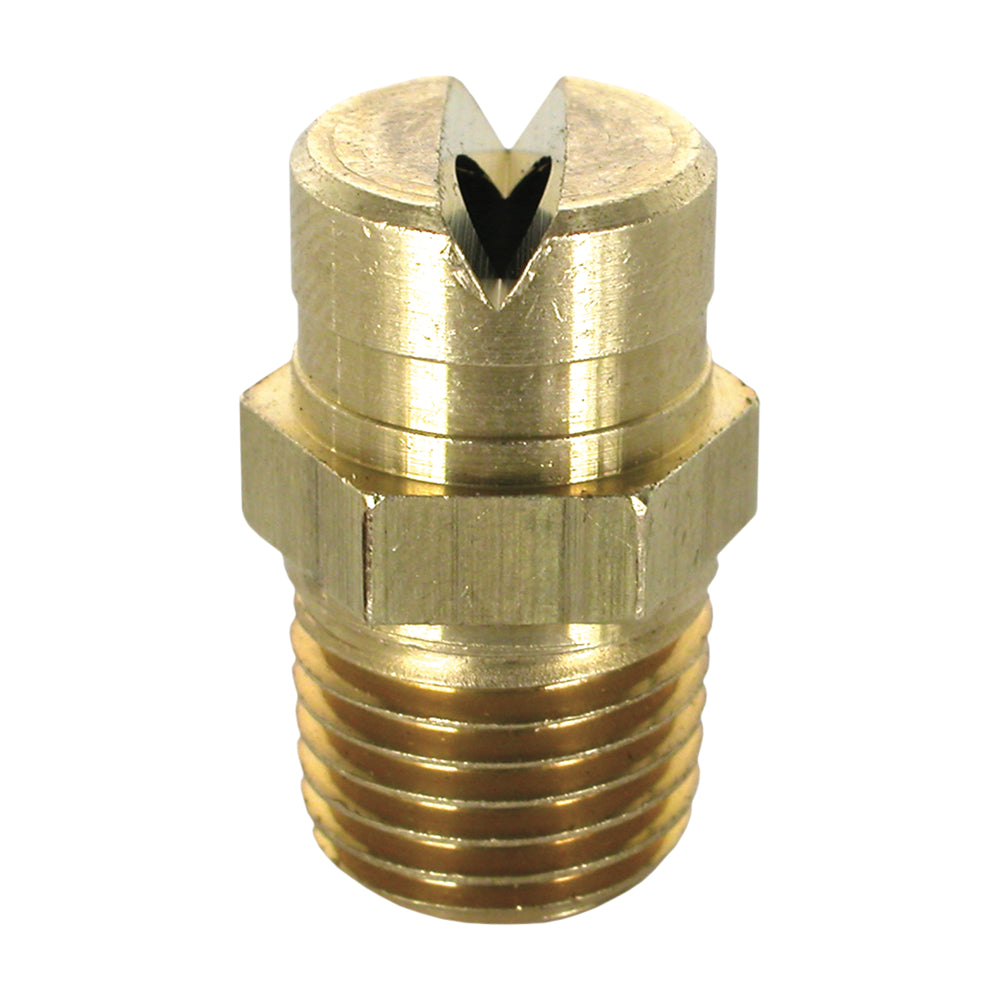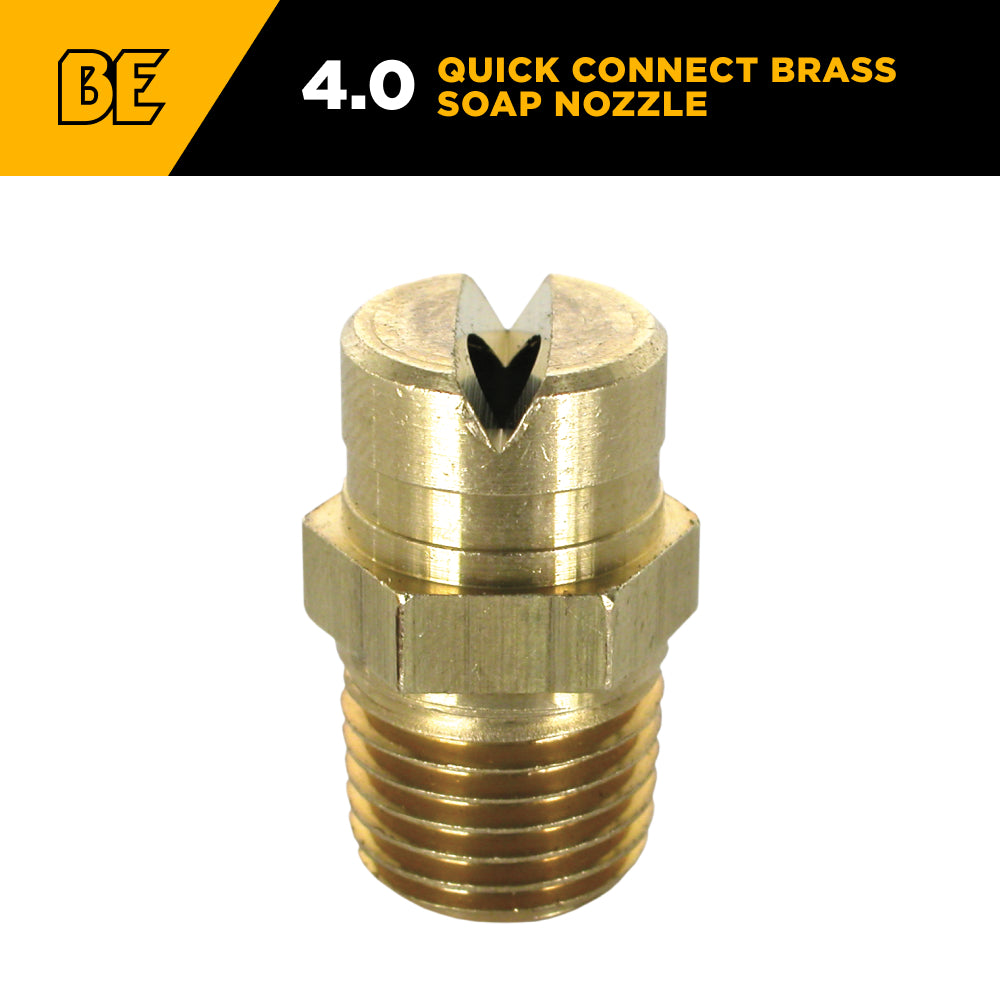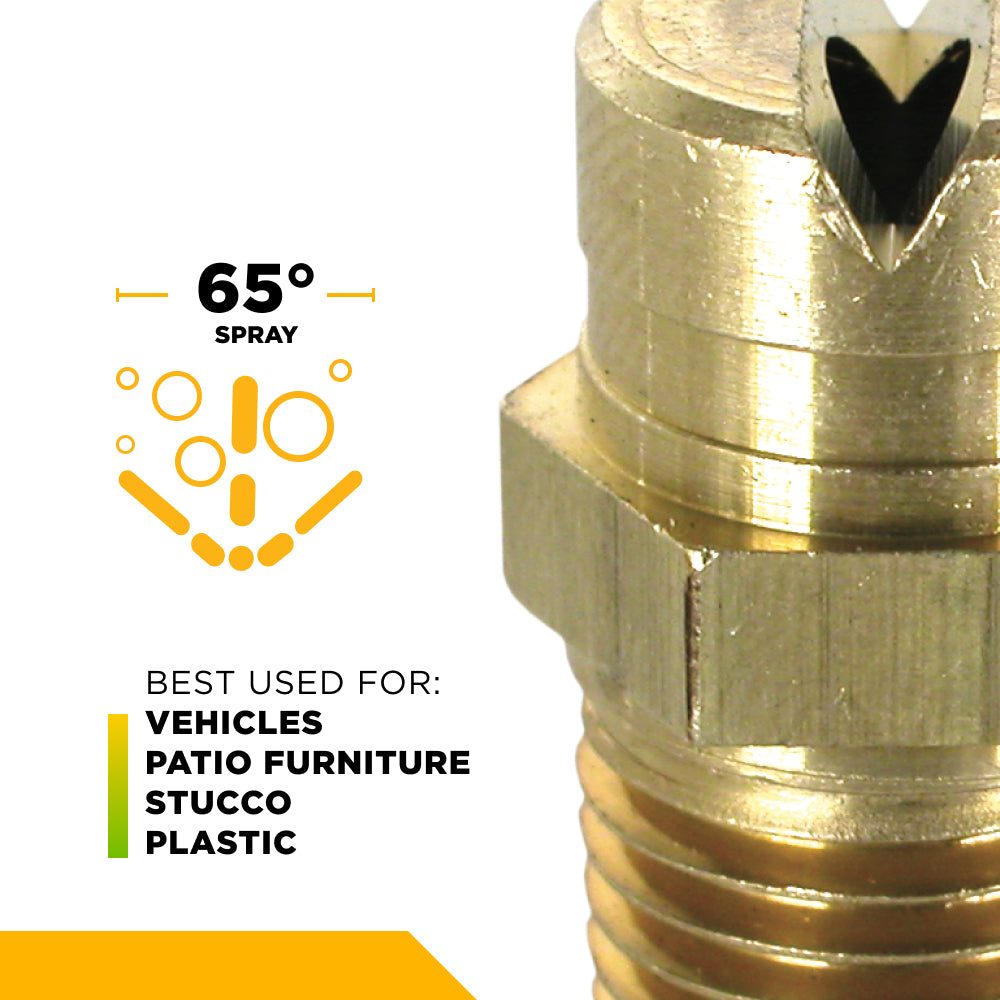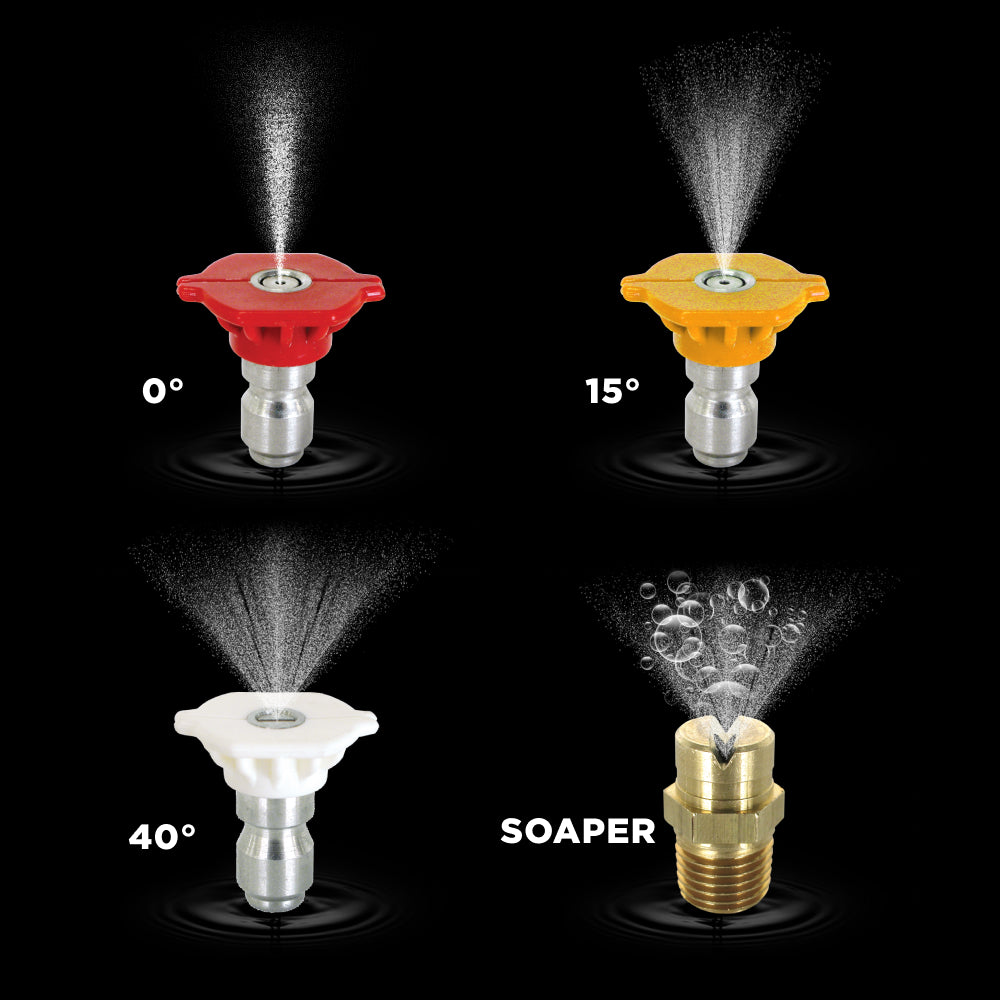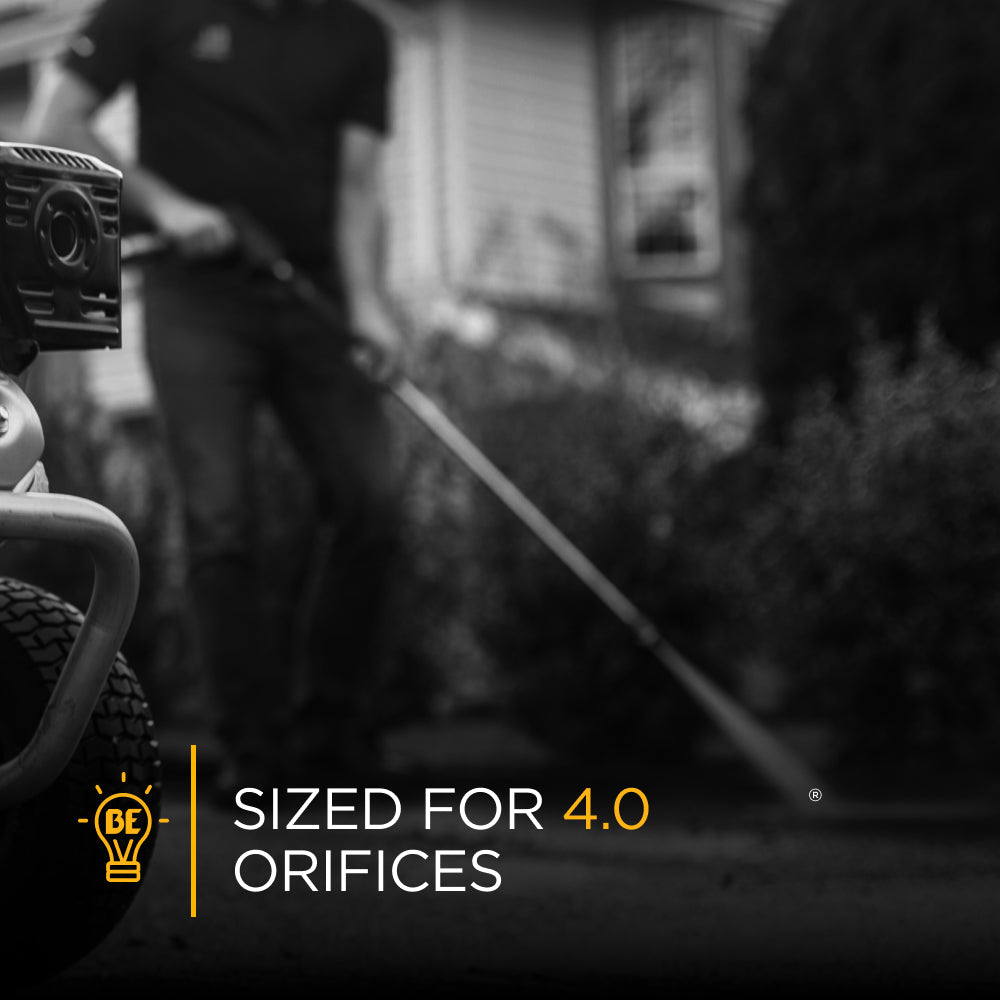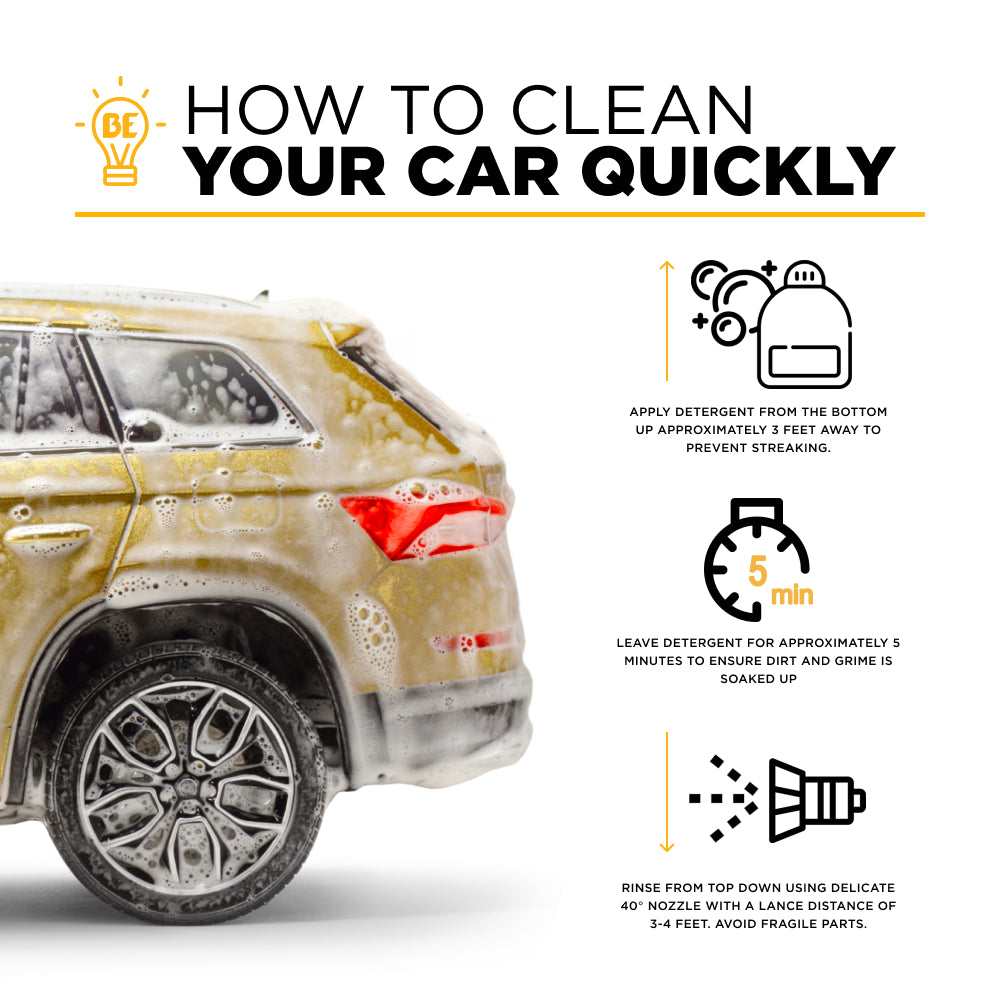PRODUCT
DESCRIPTION
Durable Brass Nozzle for Safe and Even Chemical Application
The 65° 1/4" MEG Chemical Pressure Washer Brass Nozzle with a 4.0 orifice is specifically engineered for applying detergents and chemicals through a pressure washer’s chemical injector system. Designed with a wide 65-degree fan spray, it provides low-pressure distribution that coats surfaces evenly without risk of damage. Its solid brass construction ensures durability, corrosion resistance, and long-lasting performance, making it a dependable tool for both residential and commercial cleaning.
With its 1/4" MEG threaded connection, this nozzle fits securely to spray guns, lances, and wands designed for MEG-style nozzles. The 4.0 orifice is optimized to deliver the correct flow for detergent applications, ensuring that cleaning solutions cling effectively to surfaces before high-pressure rinsing. By reducing pressure, this nozzle allows soaps and chemicals to work as intended, loosening dirt and grime while protecting delicate finishes.
The 65° MEG Chemical Brass Nozzle is perfect for a wide range of gentle cleaning and pre-treatment applications. It excels at washing vehicles, siding, decks, and patio furniture, as well as in commercial environments where controlled detergent coverage is required. Its durability and precise design make it a reliable choice for professionals and homeowners alike.
Use Cases:
-
Gentle cleaning tasks including vehicles, siding, decks, and patio furniture
-
Pre-treatment spraying prior to high-pressure washing
-
Commercial applications requiring even detergent coverage
Key Features:
-
Type: Chemical / Soap Nozzle
-
Spray Angle: 65° wide low-pressure fan pattern
-
Connection: 1/4" MEG threaded fitting
-
Orifice Size: 4.0, optimized for chemical application
-
Material: Solid brass for durability and corrosion resistance
The actual product may vary from the images shown on the website.
Frequently Asked Questions about Pressure Washers
How to store a pressure washer?
To ensure the durability of your heavy duty pressure washer:
- Empty the gas tank to prevent fuel from degrading or clogging the engine.
- Empty the pump and hoses of any remaining water.
- Perform necessary maintenance before storage.
- Store in a dry area.
- Cover.
What is a pressure washer?
A power washer is a cleaning machine that uses a gasoline engine to power a high pressure water pump and nozzle. It’s used to clean driveways, decks, vehicles, outdoor furniture and more by spraying water at high PSI to remove dirt, grime, mold and other debris.Many models also come with a detergent tank for added cleaning power.
How does a power washer work?
A power washer works by drawing water from a connected hose and pumping it through a high pressure nozzle. The gas engine powers the pump which pressurizes the water and then expels it through the nozzle at high speed to clean the surface. The water pressure is measured in PSI (pounds per square inch) and the flow rate is measured in GPM (gallons per minute).Many models also feature adjustable water pressure settings to cater to different cleaning needs. BE makes pressure washing easy with models available for light jobs and heavy duty commercial cleaning projects.
Gas vs Electric power washers?
The main difference is that a gas pressure washer, known for its cleaning power, is powered by a gasoline engine, making it more powerful and portable, while an electric pressure washer is powered by electricity and is generally quieter and lighter.
Gas pressure washers are for heavy duty and large areas due to their durability, whereas electric pressure washers are for smaller jobs.
Your BE electric pressure washer is perfect for smaller jobs and built for portability, and we offer a wide range of electric models. Included with our electric models is a long extension cord for use anywhere around your house.
What to consider?
When choosing a gas pressure washer consider:
- Pressure (PSI): More PSI means more cleaning power but also more potential for damaging delicate surfaces.
- Flow Rate (GPM): More GPM means faster cleaning as more water is dispensed.
- Engine Power: Bigger engines mean more durability and power.
- Portability: Weight, handle design and wheel size for easier to move.
- Nozzles: Multiple spray nozzles to adjust the spray pattern for different tasks.
- Adjustable Nozzle: Allows for fine-tuning the spray intensity and pattern for various cleaning needs.
How much pressure do I need for?
The required pressure (PSI) and cleaning power depend on the surface you’re cleaning:
- Light duty (car washing, outdoor furniture): 1,300-1,800 PSI.
- Medium duty (patios, fences, decks): 2,000-3,000 PSI.
- Heavy duty (driveways, brick walls, large equipment): 3,000+ PSI.
Many pressure washers come with adjustable pressure settings to handle different cleaning tasks effectively.
Can a pressure washing damage surfaces?
Yes, a power washer can damage surfaces if used incorrectly. High pressure water can strip paint, dent soft surfaces or even cause structural damage if the pressure is too high or the nozzle is held too close to the surface. Always use the right PSI for the material you’re cleaning and keep a safe distance from delicate surfaces.
To prevent damage, consider using a model with adjustable pressure settings.
How to maintain your pressure washer?
To ensure the durability and smooth operation of a pressure washer:
- Change the oil as per manufacturer’s instructions.
- Clean or replace the air filter to ensure good airflow.
- Inspect and clean the nozzle regularly to prevent clogs.
- Drain the gas tank if you’re storing the washer for a long time.
- Check the hoses for leaks or damage and replace them if needed.
- Follow regular maintenance requirements to keep the washer in optimal condition.
Can I use a pressure washer in cold weather and low water temperature?
You can use a pressure washer in cold weather but it’s more difficult. The water flow rate in the hoses and pump can freeze and damage the equipment. If you plan to use your pressure washer in cold temperatures make sure to winterize it and store it in a warm area when not in use. You can also use anti-freeze solutions for pressure washers.
Some models are designed to use hot water, which can be particularly effective for cleaning in cold weather.
Do I need any accessories?
Common accessories for power washers:
- Different nozzles (0°, 15°, 25°, 40°, and soap nozzle) to adjust spray patterns.
- Extension wands for hard to reach areas.
- Surface cleaners for large flat areas like driveways and decks.
- Hose reels to store hoses neatly and prevent tangling.
- Foam cannon or detergent bottles for soap or cleaning solutions.
- Detergents for cleaning a wide variety of surfaces.
